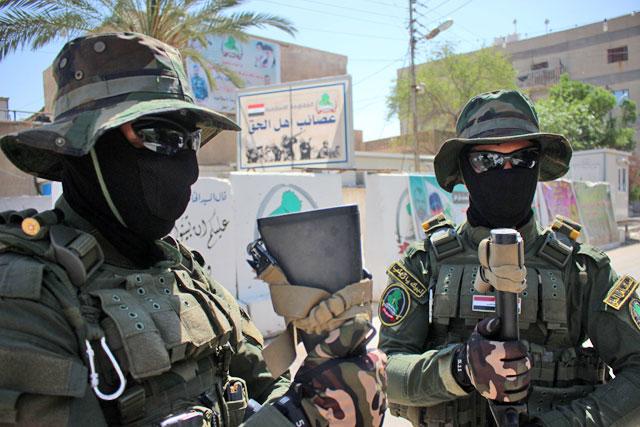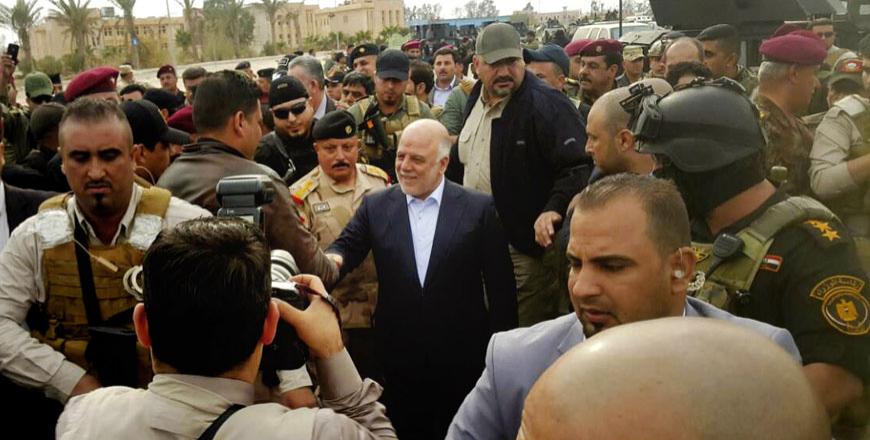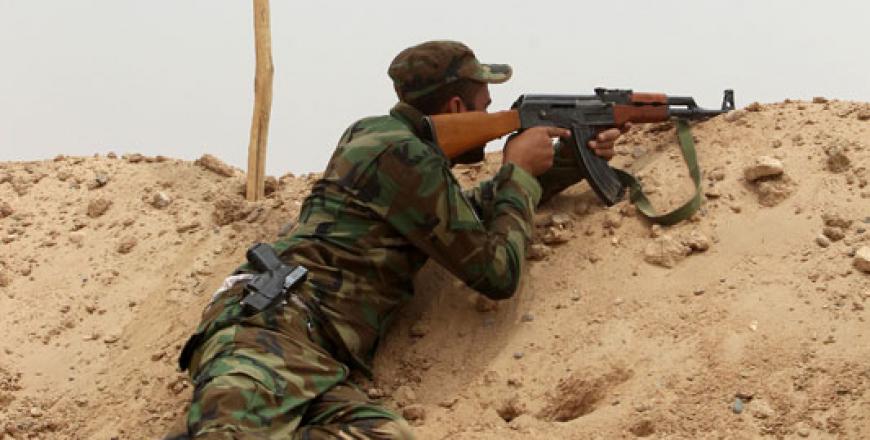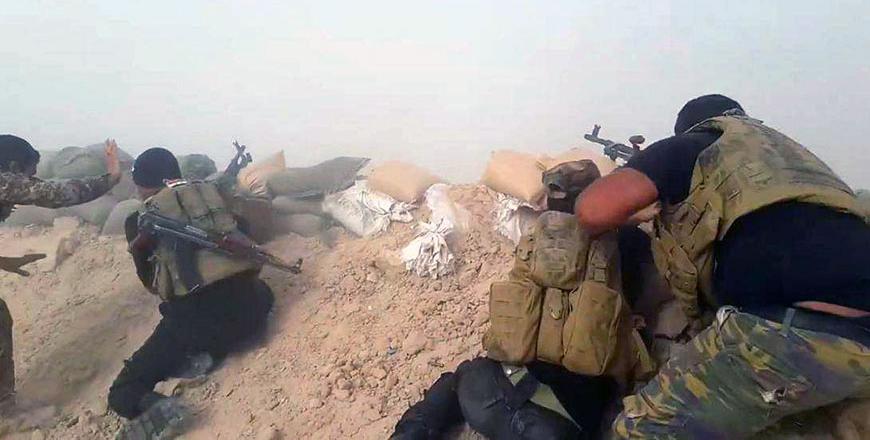You are here
Shiite militias head for Iraq’s Ramadi after Daesh takeover
By AFP - May 18,2015 - Last updated at May 18,2015

BAGHDAD — Shiite militias converged on Ramadi Monday to try to recapture it from jihadists who dealt the Iraqi government a stinging blow by overrunning the city in a deadly three-day blitz.
The loss of the capital of Iraq’s largest province was Baghdad’s worst military setback since it started clawing back territory from the Daesh group late last year.
Prime Minister Haider Al Abadi had been reluctant to deploy Shiite militias to Anbar province for fear of alienating its overwhelmingly Sunni Arab population.
He favoured developing locally recruited forces, a policy that had strong US support.
But militia commanders said Monday Ramadi’s fall had shown the government could not do without the Popular Mobilisation units (Hashed Al Shaabi).
Badr militia chief Hadi Al Ameri, a senior figure in the Hashed who has been critical of the government’s policies in Anbar, went to Habbaniyah Monday to discuss operations.
With the huge numbers and battle experience of the paramilitary groups, a counter-offensive was expected to start before Daesh can build up its defences.
The US-led coalition said it carried out 15 air strikes against Daesh in the Ramadi area in 48 hours.
Various militias announced they had units already in Anbar — including around Fallujah and Habbaniyah — ready to close in on Ramadi.
Massive reinforcements
A spokesman for Ketaeb Hizbollah, a leading Shiite paramilitary group, said it had units ready to join the Ramadi front from three directions.
“Tomorrow, God willing, these reinforcements will continue towards Anbar and Ramadi and the start of operations to cleanse the areas recently captured by Daesh will be announced,” Jaafar Al Husseini told AFP.
Asaib Ahl Al Haq, a group routinely accused of abuses, said it was discussing its deployment with the government.
“When it comes to readiness, we have more than 3,000 fighters waiting for a signal” from Asaib chief Sheikh Qais Al Khazali, spokesman Jawad Al Talabawi said.
The fall of Ramadi, some 100 kilometres west of Baghdad, came when beleaguered security forces pulled out of their last bases on Sunday.
The jihadists used waves of suicide bomb attacks involving cars, trucks and bulldozers to thrust into government-controlled neighbourhoods on Thursday and Friday.
The black Daesh flag was soon flying over the provincial headquarters and, with reinforcements slow to come, thousands of families fled.
Anbar officials said at least 500 people died in three days.
“We’re continuing to monitor reports of tough fighting in Ramadi and the situation remains fluid and contested,” Pentagon spokeswoman Maureen Schumann told AFP late Sunday.
Tensions between Tehran and Washington, Baghdad’s two main foreign partners, also played out during the battle for executed dictator Saddam Hussein’s hometown of Tikrit, which the government took back last month.
Abadi met the head of US Central Command, General Lloyd Austin, on Sunday, and on Monday Iranian Defence Minister Hossein Dehghan arrived in Baghdad.
Palmyra rocket fire
Hashed involvement was key in the recapture of Tikrit, but analysts had always warned Anbar would be a bigger task.
“Right now we’re dealing with the Sunni heartland... where the Sunni community has not completely rejected IS,” Ayham Kamel, director for the Middle East and North Africa at the Eurasia Group, said.
“It is not necessarily approval of Daesh, it could be fear or hedging, but they are not rising against IS,” he said.
Daesh on Monday released a video of celebrations in Mosul, Iraq’s second city and whose liberation from the jihadists now looks an ever more distant prospect.
In the Syrian half of the “caliphate” Daesh supremo Abu Bakr Al Baghdadi proclaimed last year, jihadist fighters nearly notched up another high-profile victory.
Government forces on Sunday repelled a Daesh advance on the ancient oasis town of Palmyra that had sparked concern that another jewel of the Middle East’s architectural heritage could be destroyed by the jihadists.
“Daesh’s attack was foiled,” provincial governor Talal Barazi said Sunday after troops ousted the jihadists from the northern part of the town which they seized on Saturday.
But the jihadists remained on the outskirts and fired a barrage of rockets into the town late Sunday, killing at least five civilians including two children, the Syrian Observatory for Human Rights said.
Syrian antiquities director Mamoun Abdulkarim said two rockets struck the garden of Palmyra’s museum but caused no damage to its priceless collection of statues, sarcophagi and other artefacts.
UNESCO has urged both sides to spare Palmyra, which it describes as one of the most important cultural centres of the ancient world.
On Monday, Daesh seized the Al Hail and Arak gas fields northeast of Palmyra, vital to the regime for generating electricity for areas it controls, the observatory said.
Related Articles
BAGHDAD — Tribal fighters deployed in Ramadi Tuesday, a step towards providing the reconquered Iraqi city with a force both capable of preve
BAGHDAD — A huge suicide attack on an Iraqi police base killed at least 37 people Monday as an operation against the Daesh group continued b
BAGHDAD — Iraqi forces retook an area west of Ramadi on Saturday as they pressed their operation aimed at sealing off the jihadists who capt














